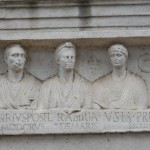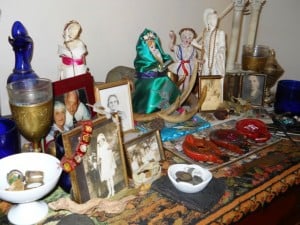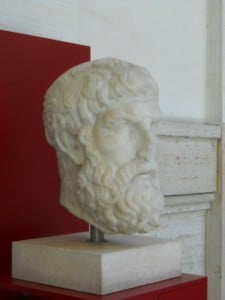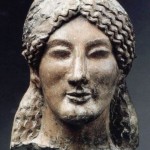A self-described “born-again” Christian once told me that what distinguishes Christians from people of all other religious faiths is that “Christians are forgiven.”
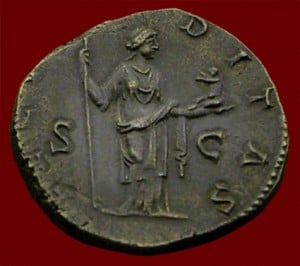
As Cultores Deorum Romanorum, we are not forgiven. We are responsible for all of the actions we take and all of the words we speak aloud. We are responsible for not taking action when we ought, and for words left unspoken when we should. We can try to make amends. We can try to correct wrongs. We may ever afterwards do right. But we are always responsible for our words and deeds. This is required by Virtus of all those who worship the Goddesses and Gods.
In the end, you are the sum of all you have ever done or said. Our indiscretions, misadventures and misfortunes are all part of life, making us who we are just as much as our wise and virtuous words and good deeds. People always act on the impression that what they do is right. If they act from a false impression, they have deceived themselves. If they instead act falsely, unjustly, or out of malice, then they have only harmed themselves. On the other hand, through the practice of virtues we may approach the divine.
“It is right,” Cicero said, “that Good Sense (Mens), Piety (Pietas), Moral Excellence (Virtus), and Good Faith (Fides) should be deified; and in Rome temples have long been publicly dedicated to those qualities, so that those who possess them, and all good people do, should believe that actual gods have been set up in their souls (Legg. 2.28).” Other virtues that Cicero included were Salus, Goddess of Health and Safety, Honor, Helpfulness, and Spes, Goddess of Good Hope. Among other divine qualities honored at Rome were Justice, Liberality, Concord, Fecundity, Freedom, Patience, Tranquility, Modesty, Goodness, Equity, Frugality, Happiness, Peacefulness, and the Nourishment of Children. Instilling such qualities in ourselves makes us into better people and provides a better society. Taking on such divine qualities as the virtues, we become more pleasing to the Gods, who are then more inclined to propitious to us when we call upon Them for Their assistance.
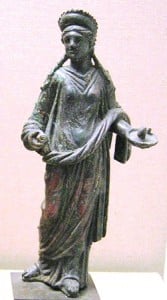
Further still, the ancients held that by practicing divine virtues we may become similar to the Gods and set ourselves on a pathway towards godhood.
“The solution is in understanding the virtues and what each has to give; thus the man will learn to work with this or that (virtue) as every several need demands. And as he reaches to loftier principles and other standards these in turn will define his conduct; . . . (until) he will live, no longer the human life of a good man, such as Civic Virtue commends, but, leaving this beneath him, will take up instead another life, that of the Gods (Plotinus Enneads I.2).”
Right conduct and prudence makes this life less contentious. Virtue improves the quality of the life we live now, a good life on earth. Virtue can also prepare us for the life to come by advancing our spiritual evolution in a manner that Plotinus addresses. We do not hold that doing good in this life is necessarily rewarded in an afterlife or that not abiding in virtue will necessarily bring punishment on you. You are your own person, made from the choices you make, and it is by becoming the person that you are at the time of your death that will determine what happens to you in the next life. Though your body may be imprisoned, crippled, or diseased in this life, although others may do misdeeds to you, though you may be stripped of all your possessions and lose everything else to uncertain fortune, your true Authentic Being cannot be harmed by anyone other than yourself. Only you can choose a path towards becoming a God or a Goddess. Thus there are no excuses for what we make of ourselves either in this life or the next. With clear judgment we do not shrink from doing what ought to be done. Acting rightly, we are not swayed by the censure of others, but remain steadfast in our resolve to do right. At the end of each day we examine the actions we took, judging what were done rightly, what were amiss, what was left undone, faulting the wrong we do and rejoicing in the right. Each day brings new adventures, new challenges, and more decisions to make. Each decision places another brick in the person we are becoming. Then, on whatever day the Fates have determined shall be the last day of your life, you shall be the person that only you have determined. Whatever kind of person we have made ourselves into at that our last moment, whether spiritually evolved or regressed, we are not forgiven.


